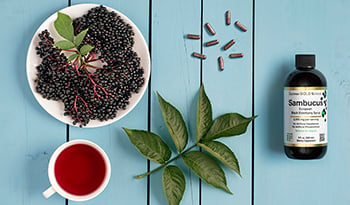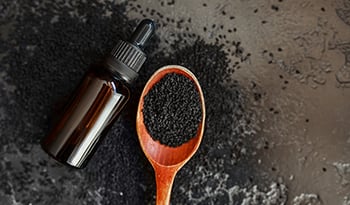6 способов борьбы со стрессом и подавлением иммунитета

Связь между стрессом и иммунитетом известна с незапамятных времен. Если не вам, то многим из ваших знакомых точно случалось свалиться с простудой или гриппом, пережив сильный стресс — на работе, в семье или из-за значительных перемен в жизни.
На самом деле эта связь является сложным взаимодействием различных процессов в вашем организме, касающихся нервной системы, гормональной системы и центральной нервной системы (сокращенно — ЦНС). Эмоциональная нагрузка, которую человек испытывает в стрессовой ситуации, способна нарушить работу этой изощренной сети систем.
Как работает иммунитет
Первоначальная реакция иммунной системы на стресс на самом деле предназначена для защиты организма и поддержания вашего здоровья. Поскольку мозг (часть ЦНС) воспринимает стресс как угрозу, он при помощи гормональной системы сигнализирует отправить клетки иммунной системы к тем участкам организма, которые с наибольшей вероятностью могут получить повреждения.
В случае раны клетки иммунной системы направляются к коже. Кроме того, они перемещаются в легкие, а также в мочевыделительную, половую и пищеварительную системы — на случай, если вам потребуется бороться с инфекцией. Такое перемещение клеток иммунной системы является одним из примеров того, как стресс стимулирует ваш иммунитет — в краткосрочной перспективе. Это адекватный биологический ответ, выработанный человеческим организмом для выживания при остром — длящемся от минут до часов — стрессе.
Следует, тем не менее, знать, что у этой острой реакции есть и отрицательная сторона. При наличии в организме воспалительных процессов, таких как сенная лихорадка или атеросклероз (затвердевание и сужение артерий), или аутоиммунных заболеваний, таких как псориаз или ревматоидный артрит, активизация иммунитета может идти во вред.
Как хронический стресс отражается на иммунитете
Когда стресс становится хроническим, то есть вы находитесь в стрессовых ситуациях неделями или месяцами без нормальной разрядки, это может привести к подавлению иммунитета. Одним из возможных объяснений такого эффекта является то, что хронические раздражители продолжительно или многократно стимулируют выработку кортизола, гормона стресса. Вырабатывается столько кортизола, что клетки, которые должны на него реагировать, в конце концов отключаются и становятся к нему резистентными.
Исследования людей, находившихся в состоянии хронического стресса, выявили у них заметно большую подверженность простуде, замедленное заживление ран и более слабую иммунную реакцию на вакцинацию.
6 способов снизить уровень стресса
После всего того стресса, который может обрушить на вас жизнь, для здоровья и поддержания иммунной системы — вашего стража и защитника — организму необходима полноценная разрядка. Существует несколько подходов к тому, как снизить уровень стресса в вашей жизни.
1. Передохните
Иногда нужно просто сделать перерыв в занятии, которое служит источником напряжения. Если у вас есть возможность отдохнуть от того, что вызывает стресс, то, вероятно, у вас получится избежать чрезмерной нагрузки — и, возможно, вернуться к такому раздражающему, но необходимому занятию со свежим, более позитивным и продуктивным настроем.
2. Высыпайтесь
В 2009 году было опубликовано исследование, показавшее, что у людей, которые каждую ночь спали меньше семи часов, вероятность заболеть простудой была выше в три раза. В рамках этого исследования также было обнаружено, что сон может улучить иммунную реакцию на вакцину, и даже помочь Т-лимфоцитам захватывать цели. Т-лимфоциты можно воспринимать как солдат вашей «иммунной армии» в битве против инфекции.
3. Смейтесь
Смех — приятный способ поднять себе иммунитет. Он способен не только облегчить психологическое состояние при стрессе, но и вызвать физические изменения в вашем организме.
Доказано, что смех может снизить уровень кортизола и адреналина (гормонов стресса). Он также способен повысить активность антител и клеток иммунной системы. Смех, хоть он сначала и вызывает компенсаторный стресс-ответ, включая ускорение пульса и повышение артериального давления, в итоге позволяет чувствовать себя более расслабленно. При этом, когда вы смеетесь, мозг вырабатывает эндорфины, «гормоны хорошего самочувствия».
4. Занимайтесь физическими упражнениями
Регулярные физические упражнения идут на пользу как телу, так и разуму. Они снижают уровень гормонов стресса и стимулируют выработку эндорфинов. Если вы не больны, заниматься физическими упражнениями для облегчения стресса можно практически каждый день. Почти любые упражнения способны приносить пользу.
Неплохой вариант — поставить себе цель уделять умеренной физической активности (например, ходьбе) 30-40 минут в день. Если у вас не получается заниматься полчаса без перерывов, можно разбить время занятия на отрезки по 10-15 минут. Возможно, вам вместо этого больше подойдет заниматься 15-20 минут в день, но более энергично.
5. Медитируйте
Нервное перенапряжение способно различными способами отразиться на вашем организме. Оно может ускорить ваш пульс, повысить артериальное давление и участить дыхание. Упражняя свой разум при помощи медитации, можно расслабить тело.
Исследования мастеров йоги показали, что медитация способна замедлить сердцебиение и дыхание, снизить артериальное давление и потребление организмом кислорода, и даже изменить температуру кожи. Медитируя, можно снизить уровень кортизола и адреналина, а также облегчить воспалительные процессы. Начните с 10-15 минут медитации 3-4 раза в неделю.
6. Выполните дыхательное упражнение
Сконцентрировавшись на своем дыхании, можно научиться успокаивать разум и тело. Вот несколько техник, которые можно попробовать.
- Осознанное дыхание: просто обратите внимание на свое дыхание и сконцентрируйтесь на нем. Не старайтесь изменить то, как именно вы дышите. Когда вы концентрируетесь на собственном дыхании, ваше тело обычно начинает дышать медленнее, и вы становитесь спокойнее. Когда ваш разум сконцентрирован на движении воздуха через нос и рот, в легкие и обратно наружу, это может ощущаться как расслабляющая медитация.
- Дыхание животом: у этого типа дыхания есть встроенный механизм самопроверки. Лягте на кровать или кресло с откидной спинкой; положите одну руку ладонью на живот, а другую на грудь. Продолжая дышать, прочувствуйте, как именно ваше тело вдыхает и выдыхает, отмечая движения живота. Обратите внимание, что колебаться вверх-вниз должна не та рука, которая лежит на груди. Заметьте, что, выдыхая, вы сокращаете мышцы живота и выдавливаете воздух из легких.
- Дыхание 4-7-8: Анна Канард, доктор остеопатии, член Ассоциации акушеров и гинекологов Америки и дипломированный акушер-гинеколог, прошедшая клиническую ординатуру по специальности «интегративная медицина», рекомендует дыхание 4-7-8 в качестве способа, «который можно применять, чтобы быстро снизить уровень стресса». Она научилась этой технике у своего наставника, доктора Эндрю Вайля, который разработал ее на основе пранаямы, дыхательной йоги.
«Чтобы снизить уровень компенсаторного стресс-ответа, выдох нужно сделать более долгим, чем вдох», говорит доктор Канард. Дыхание 4-7-8 выполняется так: вначале вы вдыхаете, считая до четырех. Потом задерживаете дыхание, считая до семи. И наконец — выдыхаете, считая до восьми.
Согласно доктору Канард, «Практикующий заметит, что его физиология стремительно изменяется. Обычно хватает примерно четырех циклов».
«Этим [дыхательным упражнением] хорошо заниматься по утрам… Или перед сном, или в любое время, когда мир начинает казаться чересчур подавляющим», объясняет она. «Вы будете лучше себя чувствовать, ваша иммунная система будет работать лучше, вы будете лучше спать».
Пищевые продукты и диетические добавки для снижения уровня стресса
Витамин C
Витамин C способен помочь защититься от негативного воздействия стресса. Согласно исследованию немецких ученых, у людей, принимавших витамин C, после выполнения заданий, таких как выступление с речью или решение сложных математических задач, наблюдались сниженные уровни артериального давления и кортизола в сравнении с теми, кто его не принимал.
Кверцитин
Кверцитин — это вещество с противовоспалительными свойствами, которое способно помочь снизить выработку кортизола при стрессе. Его можно принимать в качестве диетической добавки — или в составе пищевых продуктов, таких как яблоки, болгарский перец, зеленый чай и красный лук.
Селен
Селен — это минерал, способный помочь справиться с тревожностью, которая может возникать при стрессе. Он выпускается в форме диетической добавки, а также присутствует в составе пищевых продуктов: морепродуктов (особенно рыбы), субпродуктов (печень, почки и тому подобное) и бразильских орехов. Выбирая диетическую добавку, ищите в ее составе «селена глицинат», поскольку он хорошо всасывается в кишечнике.
Магний
Магний — это еще один минерал, который может хорошо успокаивать. Он способен воздействовать на гематоэнцефалический барьер, не позволяя гормонам стресса проникать в мозг. Подберите диетическую добавку или употребляйте такие пищевые продукты, как сельдерей, шпинат, авокадо и темный шоколад.
Омега-3 полиненасыщенные жирные кислоты
Омега-3 полиненасыщенные жирные кислоты обладают множеством полезных для здоровья свойств. Одно из таких свойств — помощь в снижении выработки гормонов стресса. Омега-3 входят в состав таких пищевых продуктов, как грецкие орехи, орехи кешью, говядина травяного откорма и жирная рыба (в том числе тунец и лосось). Выбирая диетическую добавку, убедитесь, что в ее составе присутствуют наиболее важные жирные кислоты ЭПК и ДГК (EPA и DHA).
Помните, перед началом приема любой новой диетической добавки всегда стоит проконсультироваться с вашим лечащим врачом. Это особенно важно при наличии нарушений здоровья или приеме каких-либо медицинских препаратов.
ОТКАЗ ОТ ОТВЕТСТВЕННОСТИ:Информация, содержащаяся в Центре здоровья, не предназначена для постановки диагноза...
















































































 Содержание
Содержание

















